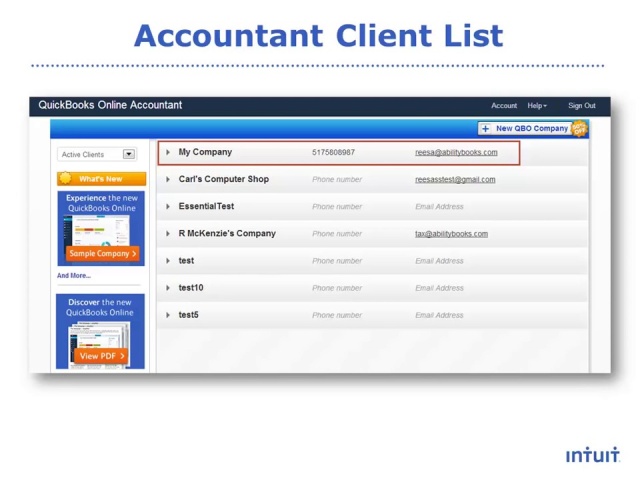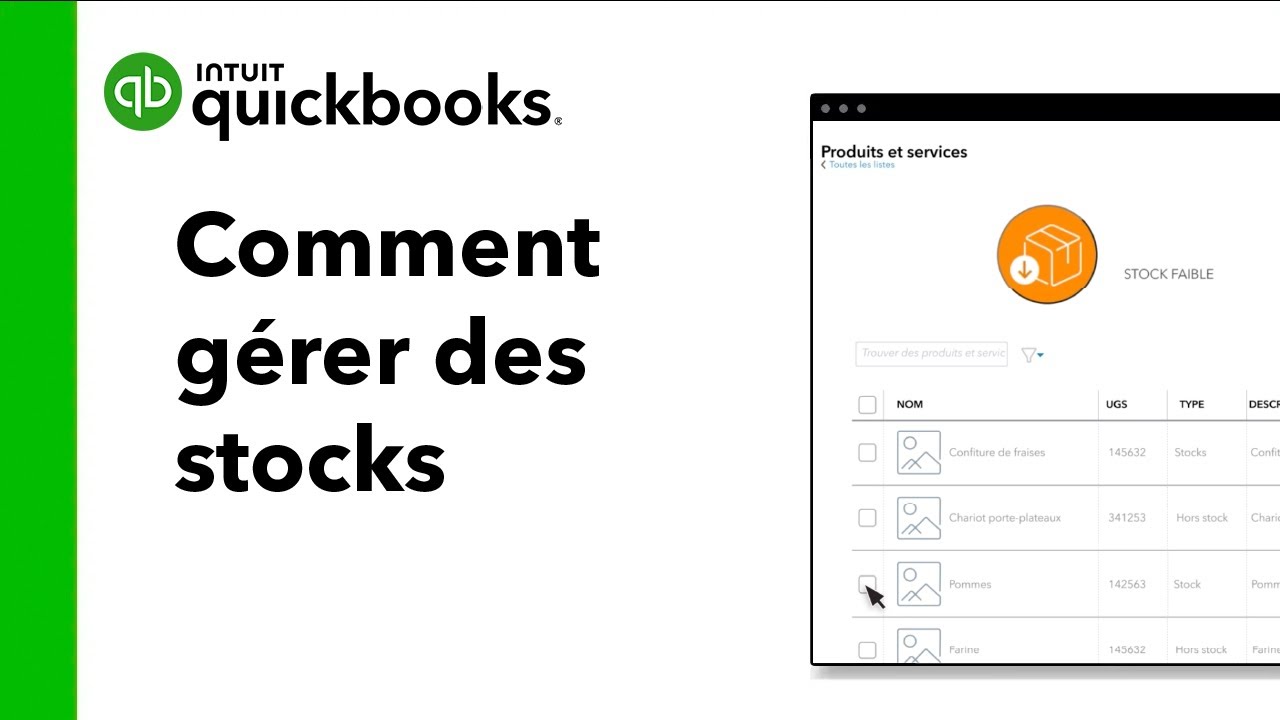In a world where every cent counts, businesses are constantly seeking ways to optimize their finances and reduce costs. QuickBooks positions itself as an essential ally in this quest, offering financial automation solutions that transform expense management. With its intuitive and powerful tools, QuickBooks simplifies transaction tracking, reduces the risk of human error, and maximizes the efficiency of accounting processes. Discover how this innovative platform revolutionizes the way businesses manage their finances, allowing for significant cost reductions while freeing up valuable time to focus on growth.
Table of Contents
ToggleThe Impact of Financial Automation

In a world where efficiency is crucial, QuickBooks stands out as an indispensable tool for cost reduction through financial automation. By eliminating manual and repetitive tasks, QuickBooks allows businesses to focus on what matters: strategy and growth.
The impact of financial automation is significant. Companies can now achieve substantial savings on personnel costs by automating key processes such as:
- Automated invoicing: By generating invoices automatically, businesses reduce human errors and improve cash flow.
- Expense management: Automating expense tracking allows for quicker and more accurate analysis, optimizing the budget.
- Bank reconciliation: QuickBooks simplifies reconciliation, significantly reducing the time spent on this task.
Thanks to these automations, businesses can also gain better visibility into their financial health. Reports generated by QuickBooks provide valuable data, enabling informed and swift decision-making.
Companies that adopt QuickBooks for their financial automation not only see a reduction in costs but also an increase in productivity. Teams can invest their time in high-value tasks instead of getting lost in administrative operations.
Finally, the integration of QuickBooks with other management and analysis tools further enhances this efficiency dynamic. This allows for smooth coordination between different departments, making the entire company more agile and responsive to market changes.
Optimization of Accounting Processes
The rise of financial automation is transforming the ways of managing finances within businesses. QuickBooks, recognized for its power, facilitates this transition by enabling companies to effectively streamline their accounting processes.
Through automation, several aspects of accounting processes are optimized:
- Reduction of errors: Manual tasks are prone to human errors. By automating, companies minimize these risks and ensure greater accuracy in financial data.
- Time savings: Teams can focus on high-value tasks rather than spending hours on repetitive data entry. QuickBooks allows for report generation in just a few clicks.
- Real-time tracking: Automation enables instant access to financial data, providing better visibility into the financial health of the company and optimizing strategic decisions.
By integrating QuickBooks, companies can also benefit from performance analysis tools that help identify areas needing improvement and develop targeted strategies to reduce costs.
Ultimately, adopting a solution like QuickBooks fosters a culture of innovation within the company. By having access to advanced technologies, teams feel more efficient and motivated to seek other solutions to continue optimizing their operations.
Reduction of Human Errors
QuickBooks establishes itself as a leader in the field of financial management through the activation of financial automation. This modern technology not only transforms how companies manage their finances but also helps significantly reduce costs.
The direct impact of automation is manifested in several key areas, particularly the reduction of human errors. By integrating automated systems, businesses decrease the risk of frequent errors associated with manual data entry.
Here’s how automation contributes to reducing errors:
- Automatic data entry: Financial information is extracted and entered automatically, avoiding any manual input that could lead to errors.
- Real-time verification: Automated systems can check for anomalies in financial transactions instantly, allowing for rapid resolution.
- Error reports: QuickBooks generates detailed reports on potential errors, enabling immediate corrective action.
This increased efficiency allows companies to spend more time on strategic tasks rather than constant rectifications. By optimizing financial processes through automation, businesses not only improve their accuracy but also achieve significant long-term savings.
By integrating solutions like QuickBooks, it becomes possible to eliminate inefficiencies and create a more organized work environment, conducive to growth and innovation.
- Automation of repetitive tasks
- Reduction of human errors
- Consolidation of financial reports
- Time savings for employees
- Facilitation of cash management
- Optimization of workflows
- Access to real-time analysis
- Reduction of audit-related costs
- Simplification of automated withdrawals
- Improvement of expense forecasting
Key Features of QuickBooks

QuickBooks is a powerful solution that revolutionizes the way businesses manage their finances. With its suite of available features, this tool facilitates the automation of repetitive tasks, thus allowing for cost reduction.
The key features of QuickBooks include:
- Invoice management: QuickBooks allows you to create and send invoices in just a few clicks, reducing the time spent on billing and improving cash flow.
- Expense tracking: The tool facilitates automatic recording of expenses and categorization, providing a clear view of the company’s finances.
- Adaptable reporting: QuickBooks generates real-time financial reports, enabling teams to make informed decisions based on accurate data.
- Simplified integration: QuickBooks integrates easily with other tools used by the company, such as CRM or project management software, promoting effective coordination.
- Workflow automation: With features like automation rules, it is possible to set up QuickBooks to automatically carry out recurring tasks.
By using these features, companies can not only save time but also gain in efficiency and productivity. Financial automation is within reach, and QuickBooks is the ideal catalyst.
With QuickBooks, the worry of manual financial management is a thing of the past. Users can focus on what truly matters: growing their business and improving their profitability.
Integration of Management Tools
QuickBooks positions itself as an essential tool for businesses looking to reduce costs through financial automation. Its ability to integrate various management tools allows for optimizing the financial process while reducing human errors.
The key features of QuickBooks offer a range of tools that facilitate financial management. Among the most notable are:
- Expense and revenue tracking: QuickBooks automates transaction entry, providing an overview of cash flows.
- Automatic invoicing: Save time by generating invoices directly from the tool without needing to create them manually.
- Management of financial reports: Create customized reports in just a few clicks for better visualization of your company’s financial health.
The integration of management tools is one of QuickBooks’ strengths. It allows for connecting third-party applications such as Salesforce, Hootsuite, or G Suite, thus creating a seamless operational ecosystem.
The benefits of this integration include:
- Real-time synchronization: Access up-to-date data on your sales and finances.
- Automation of repetitive tasks: Reduce the time spent on manual processes and focus on high-value actions.
- Improved collaboration: Strengthen communication between your sales, marketing, and accounting teams through centralized tools.
By adopting QuickBooks, companies not only save time but also boost their operational efficiency while minimizing costs. Beyond its features, QuickBooks paves the way for modern financial management that integrates technology and strategy.
Custom Financial Reports
QuickBooks establishes itself as a key player in financial automation, offering solutions that enable businesses to achieve significant savings. With its many features, this tool simplifies financial management and optimizes operational processes.
Among the major advantages of QuickBooks is the ability to create custom financial reports. These reports allow for an in-depth analysis of data, providing greater visibility into the company’s financial performance. Users can choose the elements to include in these reports, tailoring the information to their specific needs.
Custom financial reports can be generated in just a few clicks, saving valuable time. The automation of document creation also facilitates information sharing within the team and contributes to more informed decision-making. Users can also schedule recurring reports, further improving the efficiency of daily operations.
By using QuickBooks, businesses also benefit from seamless integration with other management software, allowing for the centralization of all financial data in one place. This helps reduce the time spent on administrative tasks while minimizing the risks of errors associated with manual management.
In summary, with custom financial reports and its other automated features, QuickBooks positions itself as a true lever for optimization and cost reduction for businesses. It is an essential solution for those looking to enhance their financial efficiency while adapting to technological evolutions.
User Testimonials
#Automatisation : comment tirer parti de l’exploration des processus et des tâcheshttps://t.co/9kFKTYTn3T
— IT SOCIAL (@itsocial_fr) August 2, 2024
QuickBooks offers an innovative solution for financial management, enabling businesses to reduce their costs through automation. Many users share their positive experiences on how this tool has optimized their financial management and simplified their processes.
User testimonials highlight several key advantages:
- Time savings: The ability to automate repetitive tasks such as invoicing, payment tracking, and expense management has allowed many businesses to focus on their growth.
- Reduction of errors: By automating data entries, users have noticed a significant decrease in accounting errors, which improves the accuracy of financial reports.
- Financial visibility: Access to interactive dashboards and real-time reports enables informed strategic decisions.
- Easy integration: QuickBooks integrates seamlessly with other tools, allowing for smooth financial process management without juggling multiple platforms.
Businesses of all sizes report notable improvements in their operational efficiency. Users claim that adopting QuickBooks has been a major turning point in their financial management, allowing them to focus on more strategic tasks and less on tedious paperwork.
Ultimately, the shift to financial automation with QuickBooks represents a revolution for those looking to optimize costs and improve their accounting practices. Positive feedback only confirms the impact of this solution in the modern business world.
Successful Case Studies
QuickBooks is increasingly establishing itself as an indispensable solution for financial automation. Its advanced features not only allow for financial management but also significantly reduce costs associated with accounting processes.
Users appreciate the ease of use of QuickBooks, which enables seamless integration with other tools. This facilitates data synchronization and optimizes the management of financial information. Thanks to these integrations, companies can automate financial reports, thus minimizing manual workload.
Here are some testimonials from satisfied users:
- Jean-Pierre, accountant: “QuickBooks has transformed my way of working. Repetitive tasks are now automated, allowing me to focus on more strategic analyses.”
- Sophie, finance manager: “The reduction of human errors through automation has greatly improved our efficiency.”
Case studies demonstrate the tangible benefits of QuickBooks in reducing costs. For example:
- A service SME: By automating invoicing and payment processes, the company reduced its administrative expenses by 30% in a year.
- An e-commerce business: By integrating QuickBooks with its sales platform, it automated inventory management, leading to decreased storage costs and optimized cash flow.
These examples illustrate how automation through QuickBooks can transform businesses’ financial management. By adopting this technology, companies commit to the path of efficiency and innovation.
Business Experience Feedback
QuickBooks has established itself as an essential tool in the realm of financial management. With its intuitive interface and advanced features, many businesses have seen their costs reduced through automation of their financial processes.
User testimonials reveal impressive results. Numerous businesses share their experiences regarding how QuickBooks has simplified their accounting management and optimized their expenses. Here are some feedbacks:
- Reduction of errors: One company reported a significant decrease in accounting errors after adopting QuickBooks, enabling them to reallocate staff to more strategic tasks.
- Time savings: Another company was able to automate the entry of financial data, reducing the time spent on this task by 50%.
- Increased visibility: The reporting function of QuickBooks allows businesses to have a clear view of their finances, facilitating informed decision-making.
- Cost savings: Users report substantial savings on accounting fees, allowing them to redirect those funds towards growth initiatives.
Companies that have integrated QuickBooks into their financial operations not only benefit from a reduction of costs but also from an improvement in operational efficiency. The tool meets the growing needs of users for flexibility and speed, while adapting to the constantly evolving market.
By adopting a solution like QuickBooks, companies commit to the path of innovation, thereby enhancing their competitiveness and ability to focus on long-term growth objectives.
“`










